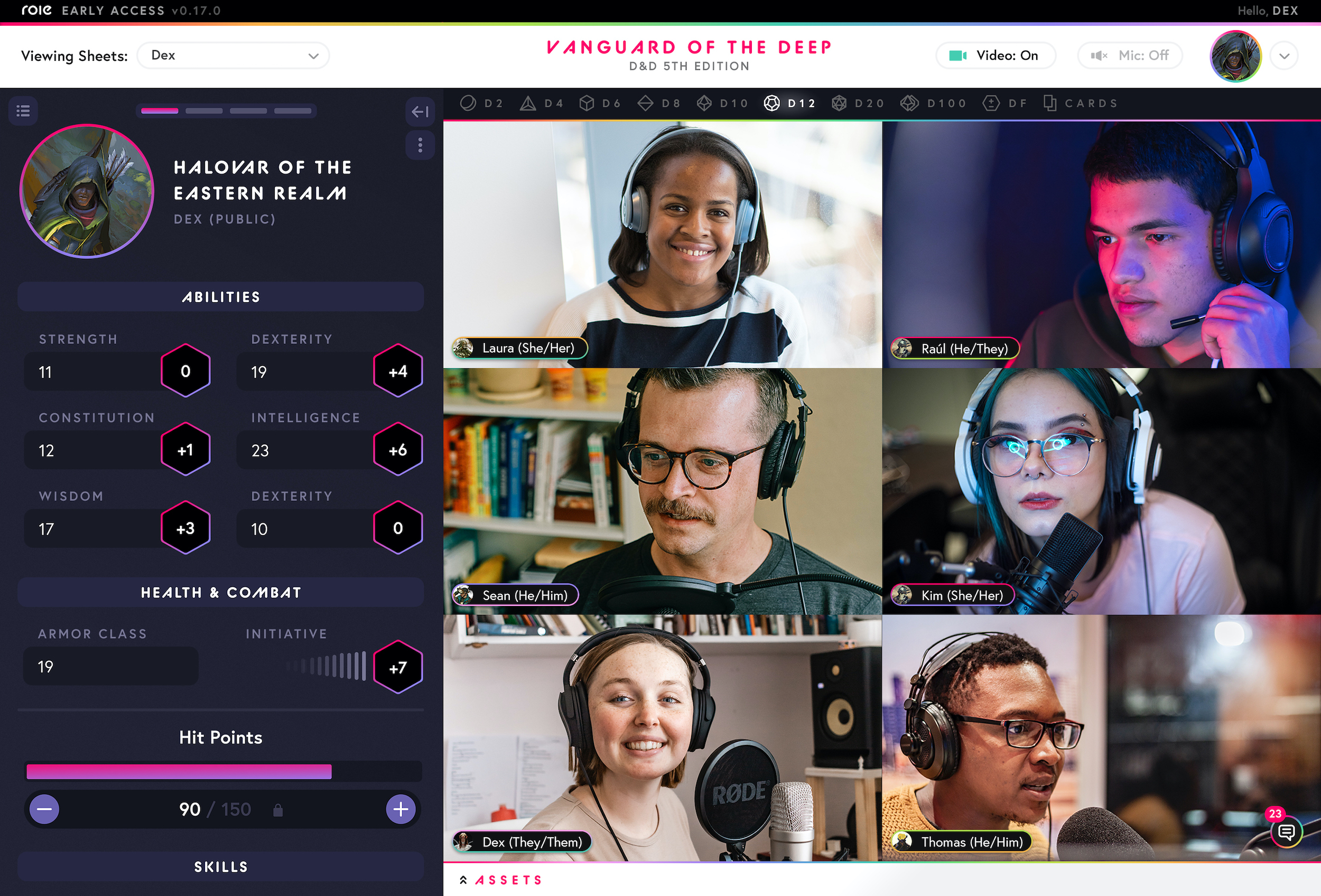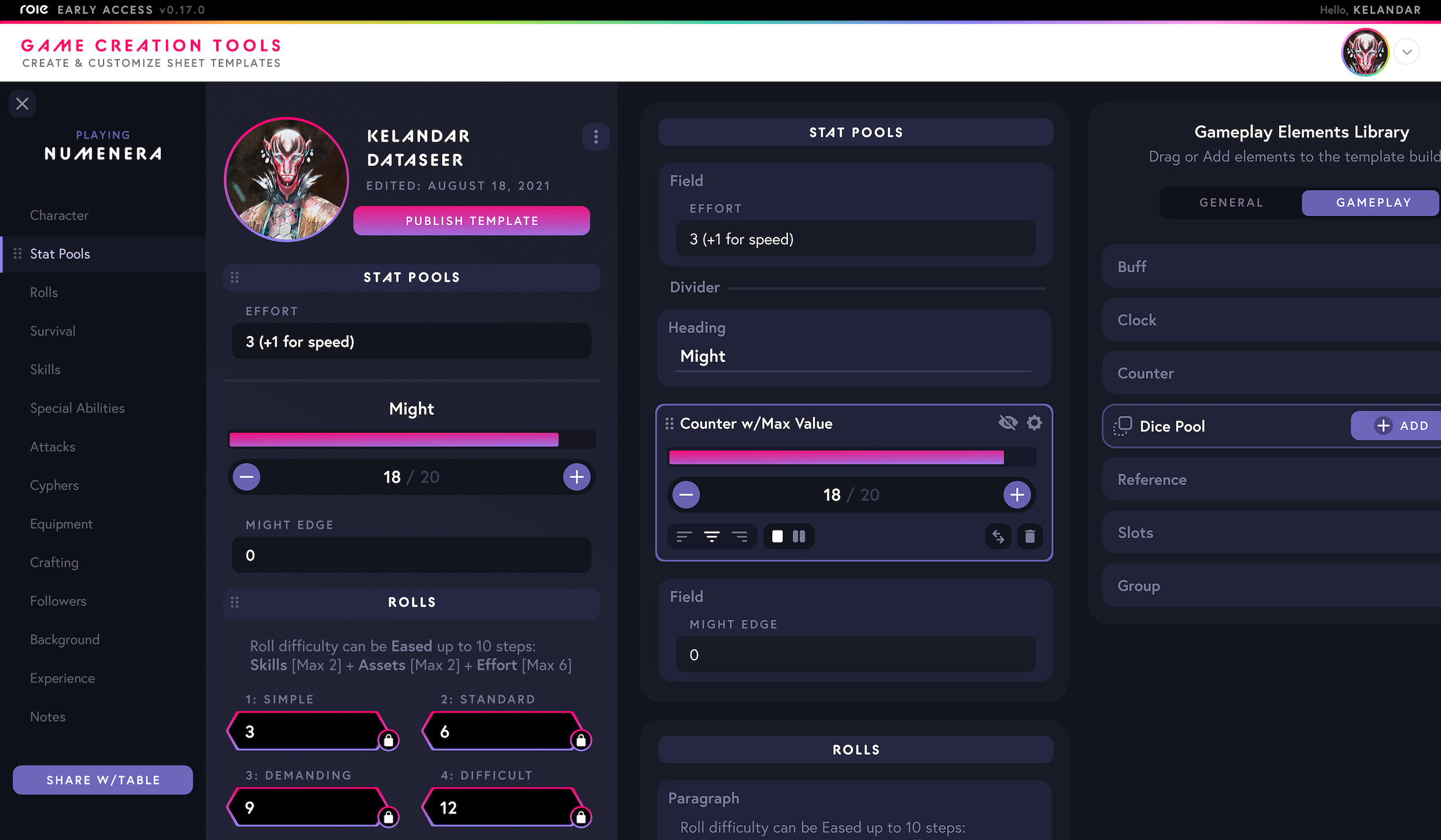Tabletop gaming is in the middle of a historic boom, despite recent restrictions imposed on in-person gatherings by COVID. The tools adopted by game masters and casual players to play remotely are powerful but not always the easiest to use or adopt. Role hopes to change that with a super-accessible video platform focused on the social aspect of role-playing games, and it has raised a $2.75 million seed round to do so.
It’s hard to say what has powered the incredible growth of the tabletop gaming space, which just a few years ago was perceived as a sleepy realm of basement-dwelling nerds, a niche within a niche. But it was a different kind of sleeping giant, one that has proven to be immensely diverse, valuable, and surprisingly tenacious in the face of the pandemic.
Some platforms, like Roll20 and Fantasy Grounds, have seized on this opportunity to provide online video collaboration platforms for playing games like D&D, strategy titles, and many others of the general tabletop type.
But Logan Dwight and Ian Hirschfeld, co-founders of Role, felt these approaches tended to emphasize the mechanics over what they felt was a more important aspect of RPGs.
“We asked ourselves, why is it that people, when they have all these options, choose to play D&D on the internet? And what we figured out is, it’s the people,” said Dwight. “The game lives in the minds of the people, a shared social experience. It’s about the conversation, the face-to-face interactions.”
This is the start of something new, they said — and big. As an analogue, they referred to the social gaming explosion a decade ago.
“People always find a way to play. Because we had social media platforms and mobile phones then, we were socializing over those — so we naturally looked for ways to play over them,” they said. “We’re at another one of those inflection points now with the explosion of online video and the creator economy in gaming. Video has become so good and so ubiquitous it’s becoming the dominant way people socialize — and then what naturally happens is we look for a way to play. And it turns out the, answer was right under our noses, and it’s been there since the ’70s: it’s role playing, a game that takes the form of conversation.”
Role was designed from the ground up to smooth out and simplify how the complex mechanics of these games are implemented, putting the players visually and cognitively at the forefront. After all, when you’re playing D&D or another game around the table, you spend most of your time looking at each other, not the game board — because it’s a game and you’re having fun with each other, right?
Of course, it’s easy to say the face-to-face interactions should be front and center, but the truth is these games are mechanically complicated and involve sheets, dice, maps, rulebooks and so on. Dwight said the problem here is not so much keeping them always in view, but making them simple and intuitive to access and involve in gameplay.
Take a character sheet with some attributes and associated bonuses, and a standard combat encounter. Depending on how well the GM has prepped, it may be that the dice rolls need to have bonuses added manually, and the results compared manually to the defending monster’s sheet. But if the bonuses, the dice, and the monster’s stats are all aware of one another, you know if you hit as soon as the die is cast.
This can be done in many games but it’s not always easy, and becomes much harder the further one goes from official, canon rulebooks. House rules are common enough, but these days there are entire variant game types being built out from open-license rulebooks that have no “official” support from a major gaming company like Wizards. Prepping a game for play online might be weeks of work that’s relatively technically demanding.
Some GMs and creators take pleasure in the intricacy of these systems, but as Dwight pointed out, the expansion of the community means more people are coming to this from non-gaming and non-tech backgrounds.
“The core skills people are bringing to this are that they’re a writer or something. So the ability to create together needs to be really easy and really powerful,” they said. “We want to give people like… a Squarespace for tabletop RPGs. It’s a WYSIWYG editor, the RPG equivalent of a box of LEGO. You can make a whole set of templates for whatever game you want to run, tweak sheets, create animations, all without having to touch code, and you can share it easily.”
The platform has already seen major growth in user-created campaigns and variants for games designed to be built upon, like Mörk Borg and Lancer, with thousands being shared.
Role first raised money via Kickstarter (though the idea goes back to 2015), then via some angel funding, but this seed round brings in their first proper VC money. The $2.75M round is co-led by Konvoy and London Venture Partners, with whom Dwight said they were pleased to find willing partners who understood the opportunity perfectly. That’s a feat, considering the skyrocketing value and diversity of tabletop has taken even industry veterans by surprise.
The money is going towards effecting the lessons the company has learned from its early adopters, with a renewed focus on ease of use, accessibility, and extensibility. As for making money, the company intends to do so through a marketplace for games and scenarios, and for premium features like extra online storage and so on. But for regular users who just want to play with friends, Role is free to sign up for and use right now.


